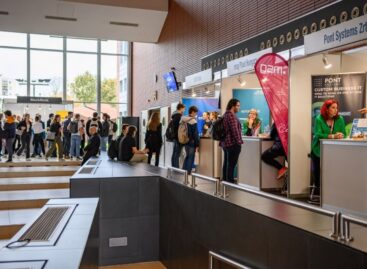CIES-conference: Big globally, small locally
One of the leading events of the international retail sector was held in Budapest, in November. The 200 participants discussed current trends in marketing. From a Hungarian perspective, the most interesting presentation was held by Steve Reynolds, marketing director of Tesco Hungary, under the title „Lessons learned from Hungarian retail trade”. He began by summing up the history of Tesco Hungary since 1994. At the end of 2008, Tesco had 89 stores throughout the country. Like everybody else, Tesco is also trying to get to know customers as well as possible and to provide the best service for them. 20 000 interviews were conducted in 200 focus groups last year, to see how satisfied customers are with Tesco. Mystery shopping is also used frequently to find out what the factors influencing shopping decisions are. Low prices are more important today than ever before, but Hungarians show more preference for higher quality products than in many other markets. Knowledge accumulated about customers is shared within the chain so that it can be utilised in all positions. Current trends are discussed on a weekly basis. Tesco’s market position is assessed on a quarterly basis, while brand value is assessed annually. Continuous learning is part of the job for management. An example of flexibility has been Tesco’s ability to give up focusing on the non-food assortment after realising that food is far more important for customers in Hungary. Promotional isles have been first used by Tesco Hungary and later adopted in neighbouring markets. Tesco hyper markets are managed by Hungarians. Tesco does not have a uniform international hyper market concept, because it wants to adapt to local conditions everywhere. Following his presentation, Steve Reynolds had to answer many questions. What he had to say about brand value was: – One of our objectives is to make Tesco stores splendid places for shopping and working. We want customers to enjoy themselves. We also want to be good neighbours, protecting our environment, providing employment and supporting initiatives by NGO-s. Regarding a question about trusting Hungarian employees, he said that regular courses are held for employees. About the co-existence of different cultures within the company, he said that this not a problem. Managers from Metro are present at practically every major international conference. Peter Linzbach, director in charge of customer relations spoke about their plans for international expansion. Local cultures are usually adopted. One of their main objectives in Eastern Europe is to achieve a leading position in terms of costs and prices, while introducing their innovative assortment is another objective. Central and Eastern European markets are somewhere half way between saturation and growth. Chris Percy is in charge of CR for the emerging markets region of Nielsen. He does not believe that multinationals have comprehensive global concepts. Wal-Mart and Carrefour, the biggest retail chains in the world are big globally, but small locally. Multinationals always focus on satisfying local demand. Knowing customers is the key element of success.
Related news
Related news
Gross from 600 thousand to 1.5 million: numbers also reduce the anxiety of career starters
🎧 Hallgasd a cikket: Lejátszás Szünet Folytatás Leállítás Nyelv: Auto…
Read more >





